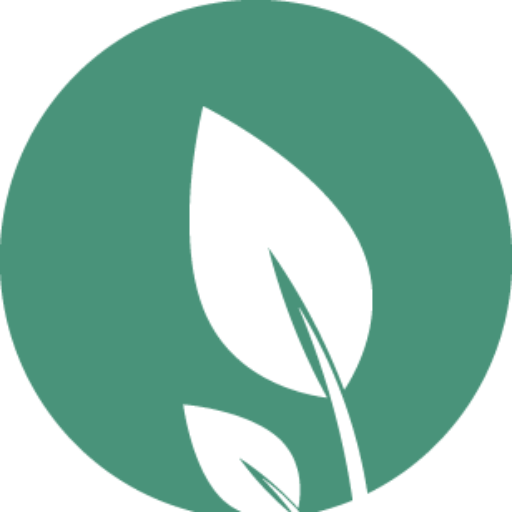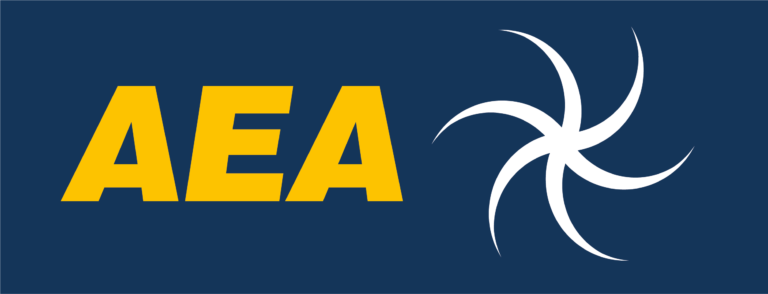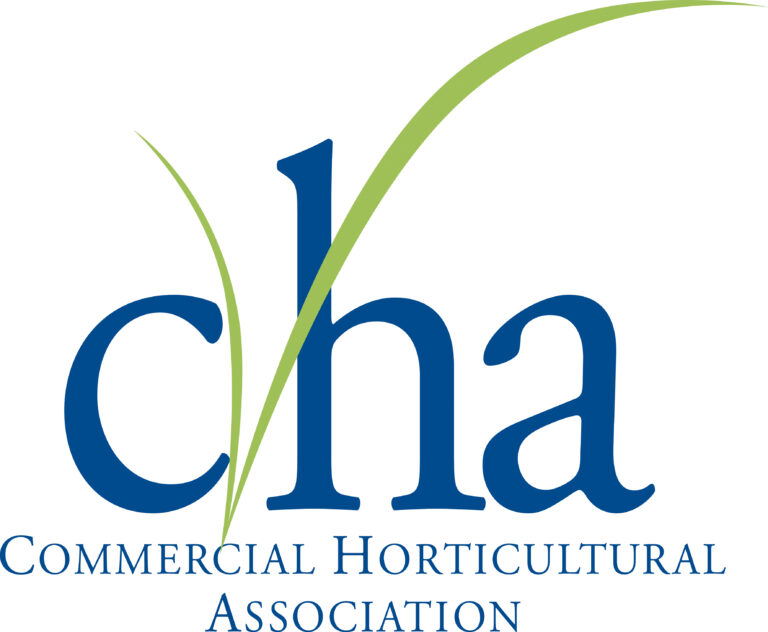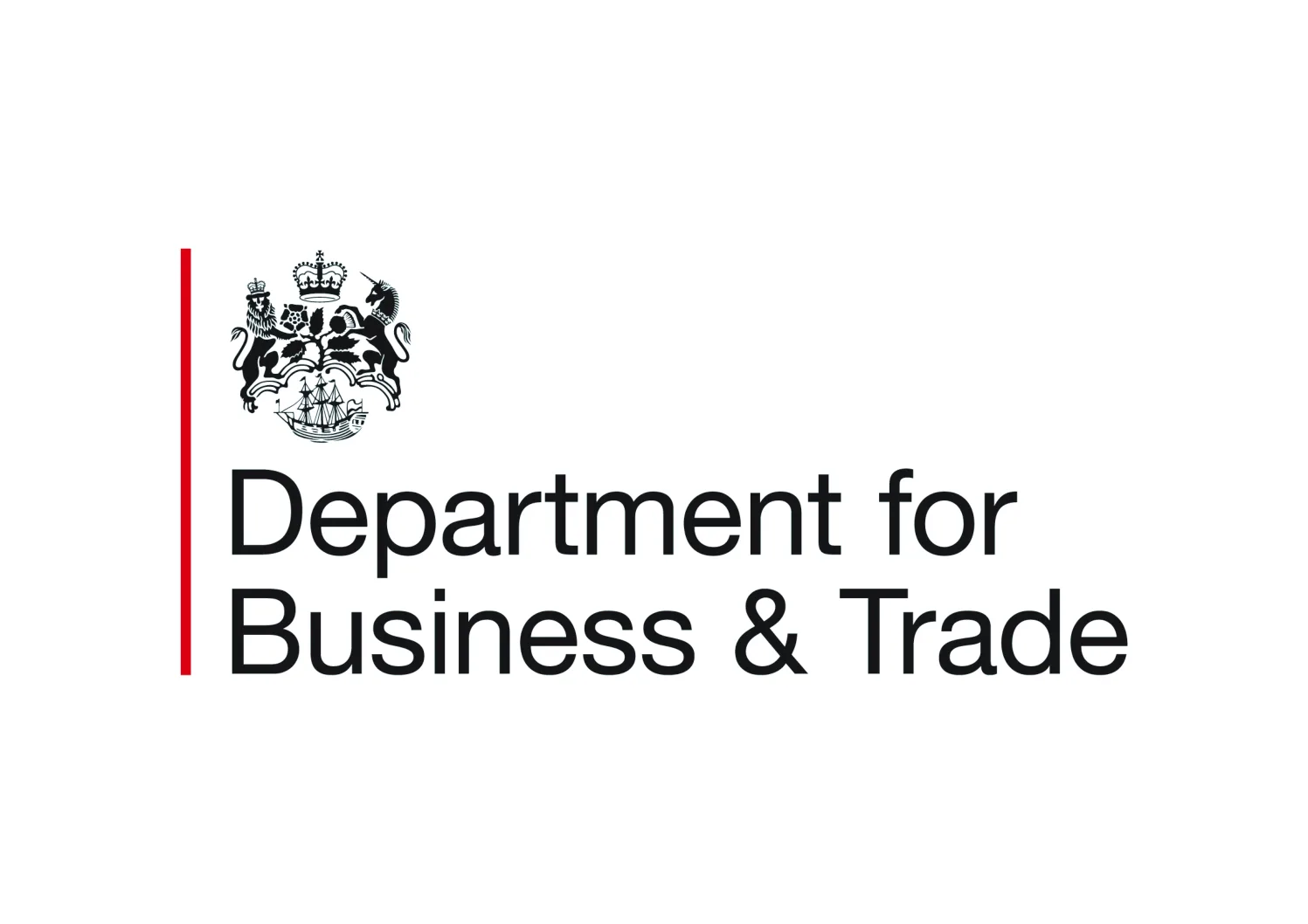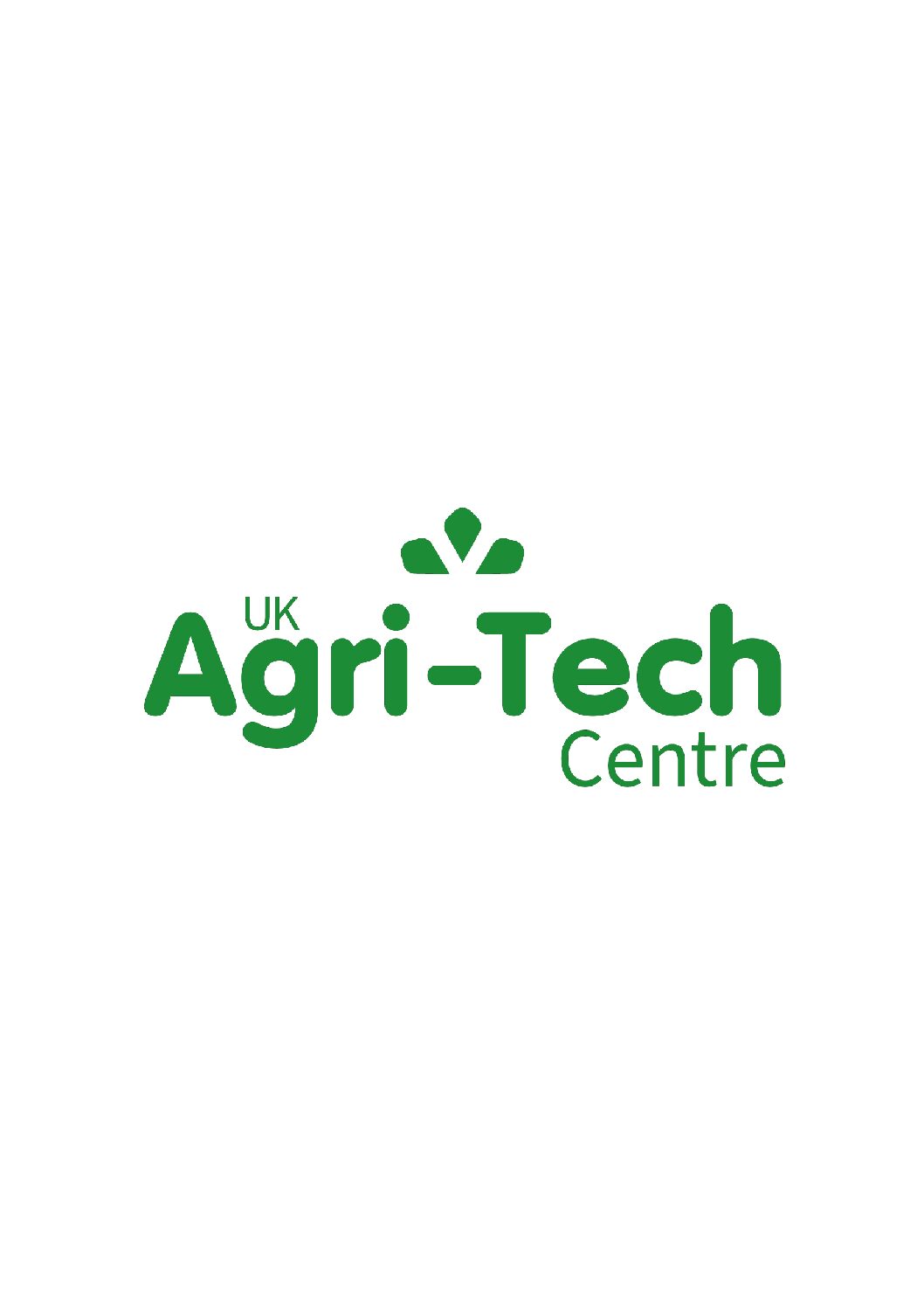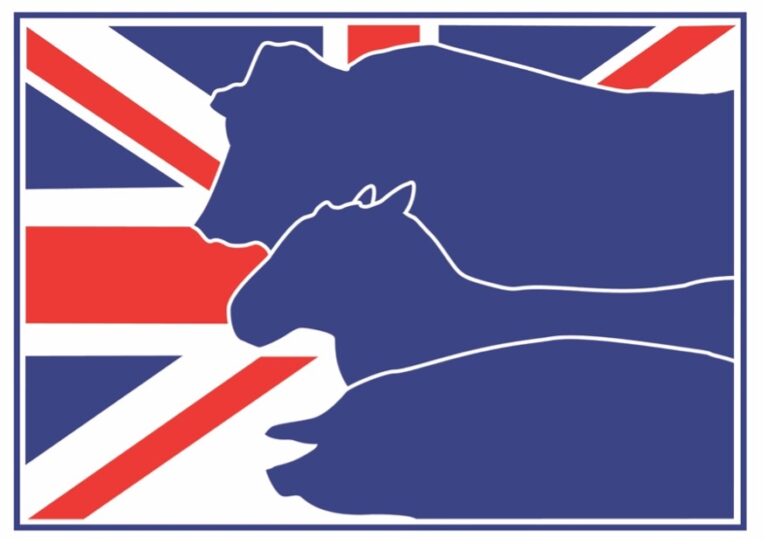Malvern, Worcestershire, UK
Participants:
UKTAG
- Dr. Rob Grinnall
- Mr Chris Jackson, Export manager UKTAG
- Mrs Svetlana Collier – EECAN consultant – UKTAG
Delegates:
- Mrs Meruyert Kairbekova, Agri-Tech lead, British Embassy Astana, Kazakhstan
- Dr Zhanat Kassenov, breeding programme leader, Institute of Sheep Breeding, “Suleimenov” farm, Kazakhstan
- Mr Shokan Alzhan, head of Amanat Farm (Edilbay breed of sheep 6,000 heads, livestock), Kazakhstan
- Mr Amirserik Abiyev, Ekpin-2000 LLP (Edilbay breed of sheep 6,000 heads), Kazakhstan
- Mr Orazgeldi (Oraz) Rakhmanov, State Association of Livestock and Poultry Industry, Turkmenistan
- Mr Hojamammet (Atazhan) Kertikov, State Association of Livestock and Poultry Industry, Turkmenistan
- Mr Ganbat Dulamsuren, Livestock Commercialization Project, funded by the World Bank and managed by the Ministry of Food and Agriculture, Light Industry, Mongolia
- Mrs Zolzaya Luvsansharav, Biodiversity Finance Initiative (BIOFIN) Phase II, United Nations Development Programme, Mongolia
Embassy visitors:
- Mr Yerlan Zeineshev, Counsellor, Head of Economic Section, Embassy of Kazakhstan in London
- Mr. Galymzhan Baiimbet, Kazakh TV journalist
- Mr Nusrat Sagdiev, Consul, Embassy of Uzbekistan in London
- Mr Akmal Saatov, Chief Accountant, Embassy of Uzbekistan in London
- Mr Jasur Valiev, Third secretary, Embassy of Uzbekistan in London
- Mr Zorigtbat Tseveenjav, Counsellor in charge of economic and trade affairs Mongolian Embassy London
The aim of this mission was to showcase the best of UK sheep and livestock sector can offer, focusing on breeds and breeding, farming practices, technology, equipment and education. To demonstrate how UK agri-tech can help in tackling challenges and increasing production in EECAN, by improving their native breeds, altering farming practices with focus on saving scarce resources and making production economically more efficient.
July 29th
The delegates joined the NSA farm tour, visiting two farms with different approaches and practices.
Risbury Court Farm has Hereford cattle and Romney Cross ewes. It focusses on regenerative agriculture and soil health, improving pastures and grazing. Richard Thomas, who runs the farm explained how he uses research into soil health to enhance conditions on the pastures, and about plants helping to fight gastrointestinal parasites. Richard has a holistic approach to farming with his Romney cross sheep where soil management and environmental issues were top priority. He is passionate about his approach where he aims for minimal input to produce good carcass sheep without the need for chemicals and artificial fertilisers.
Cawley Farm is based around the National Trust estate, with combinable crops, dairy heard, and shedding sheep flock. Being part of the National Trust Estate, the farm is constrained in what can be done and the size of their flock. They use shedding sheep on the farm eliminating the need for shearing. Will talked about their breeding programmes and the rams for sale. His hair sheep are being developed for ease of management with good carcasses and he showed the visitors how his enterprise runs on minimal equipment needs and keeps overheads under control.
The day finished with Gala Dinner where the delegates met key contacts in the sector and UK TAG discussed their projects and financing options. The NSA Dinner was a great success with British lamb being produced for the 500 guests in what can only be described as military style. The meal was superb, our thanks must go to the NSA and our sponsors including Farmgene who supported our guests.
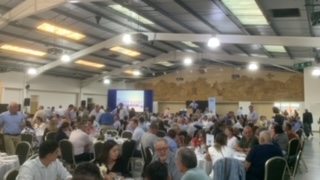
30th July. National Sheep Event.
Representatives from the Embassies of Uzbekistan and Kazakhstan joined us for the event. Journalist from Kazakh Government TV channel recorded several interviews with key people.
This event focused on more commercial breeds of sheep, equipment, farming practices, feed and consumables. Trade associations, breed societies, and AHDB were also present.
All visitors were given tours around the breeds. Meetings were conducted with several companies including Rappa Fencing and Lister Shearing. Interest came up about livestock tagging ang tracing. One of the questions was about wool and sheepskin processing. Long discussions were held at AHDB stand about their support for sheep sector, breeding and genomics works. Zhanat, the breeding expert from Kazakhstan, was interested in their work to predict meat quality and in possibility of joint projects.
The event was of great interest to the delegates. It provided a good insight into innovations in British sheep sector, breeding, feeding, care, meat quality. Delegates from Kazakhstan have shown an interest in purchasing rams, trailers, weighing equipment. Delegates from Mongolia were interested in tagging and tracing.
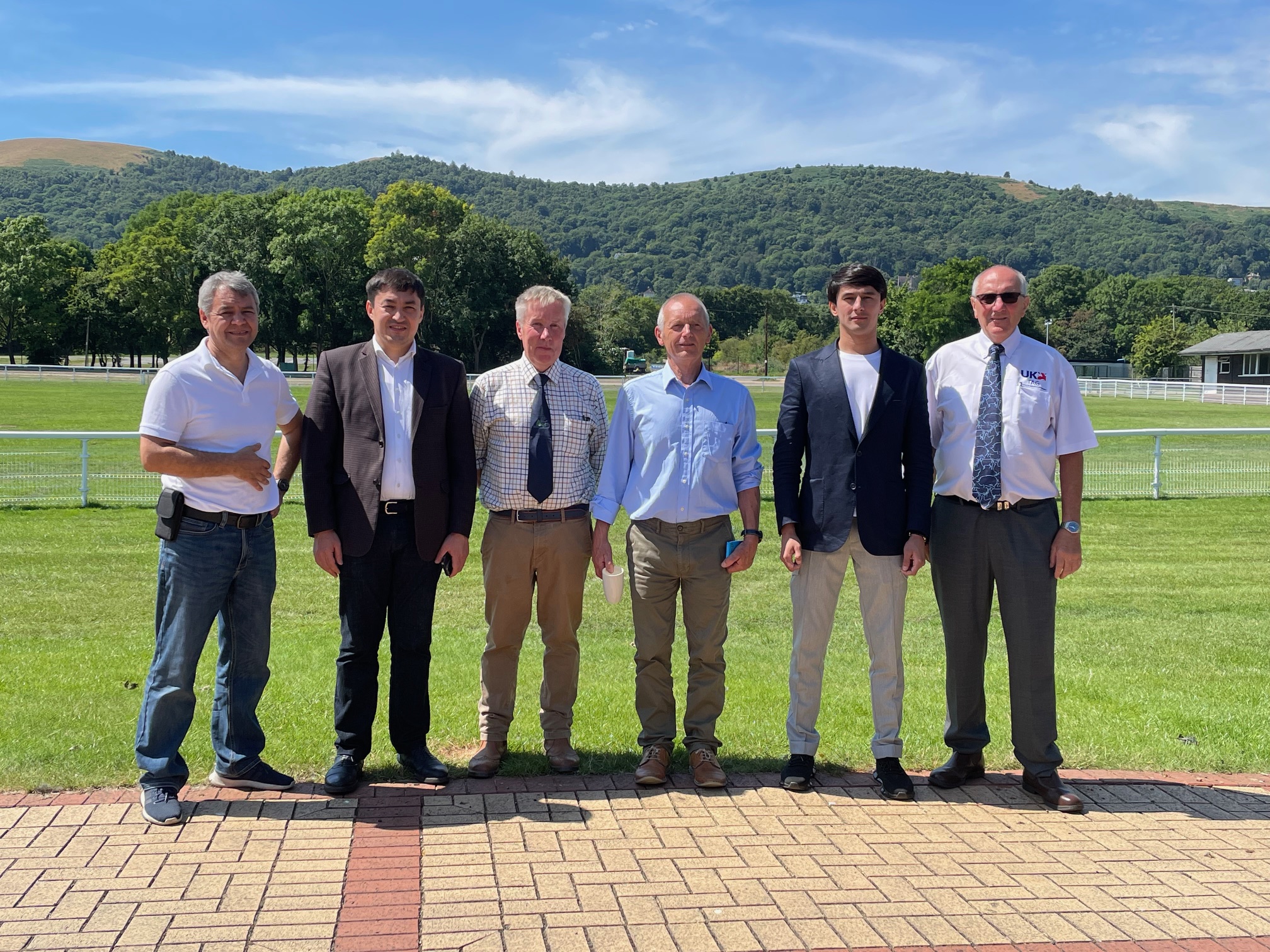
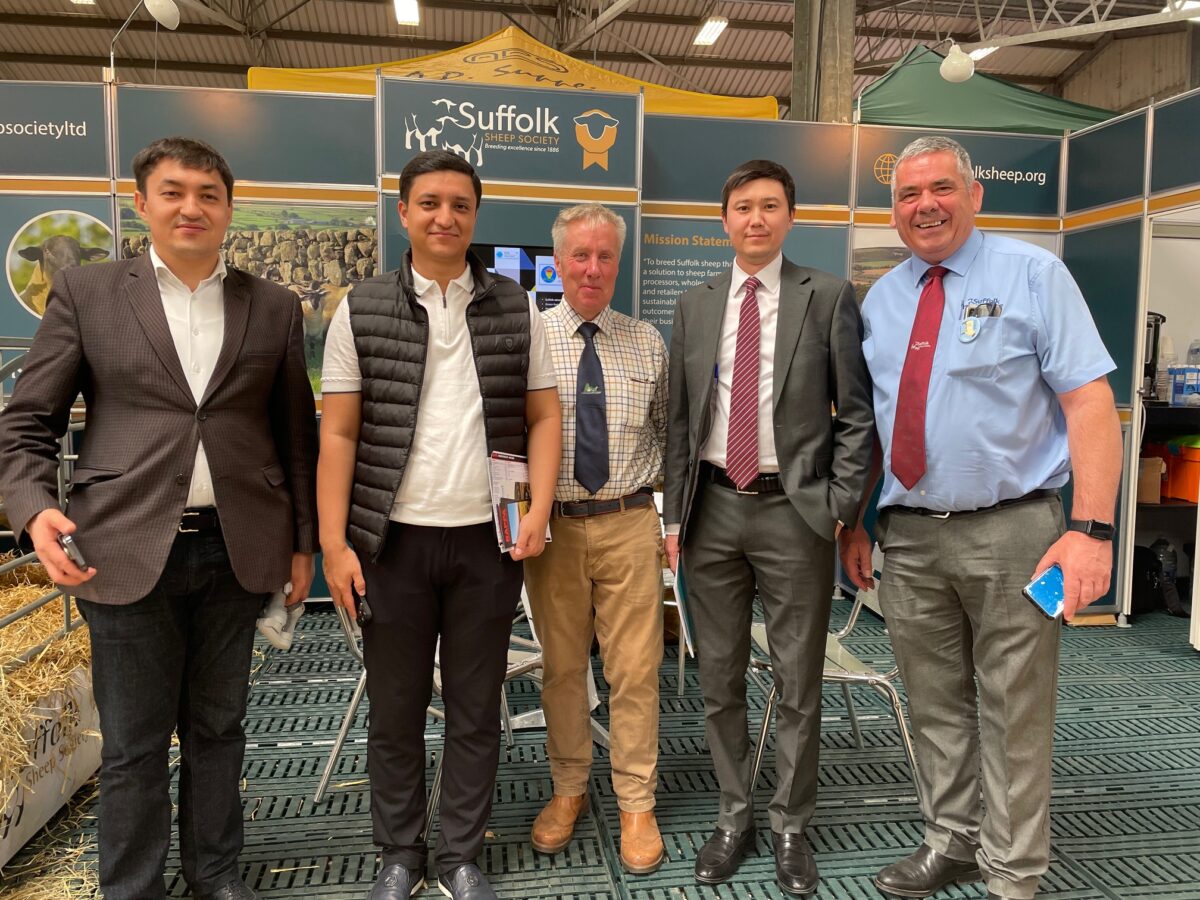
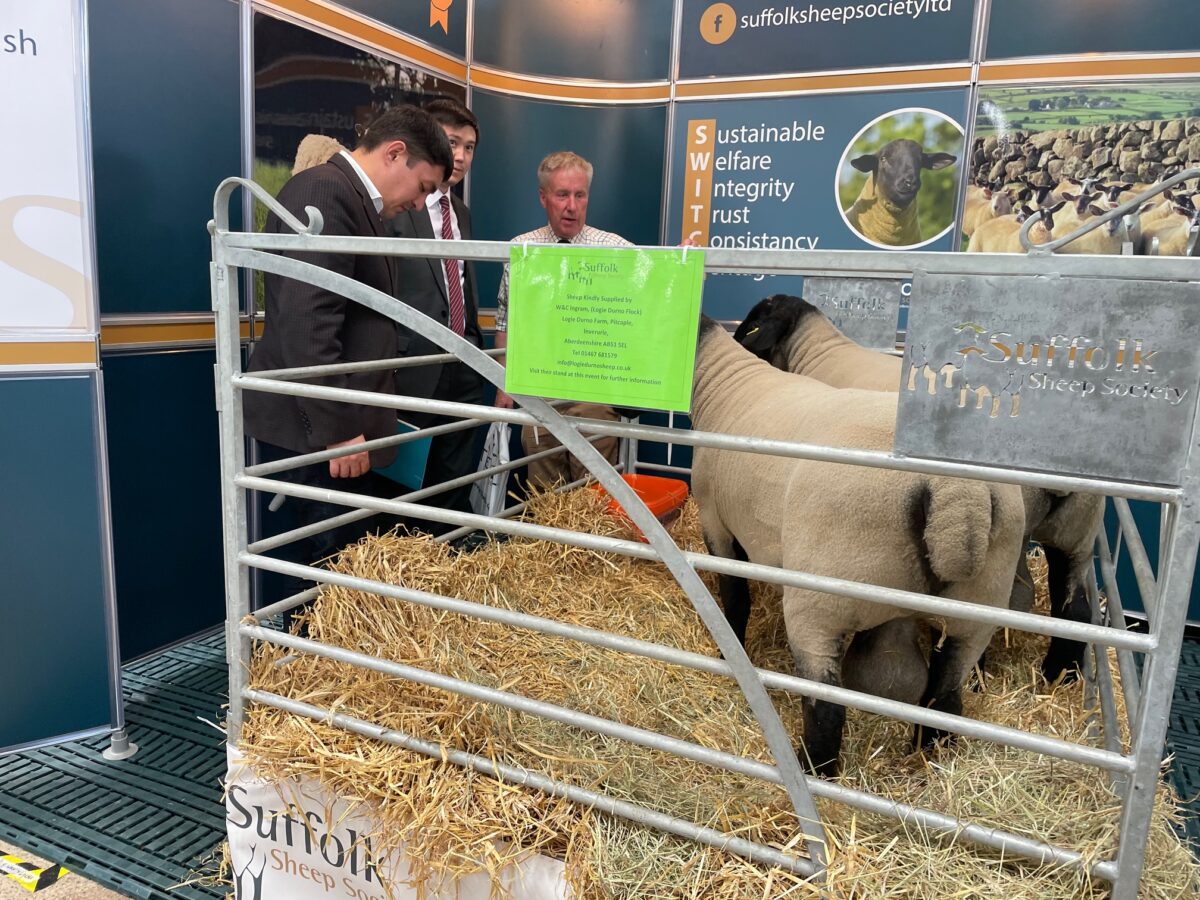
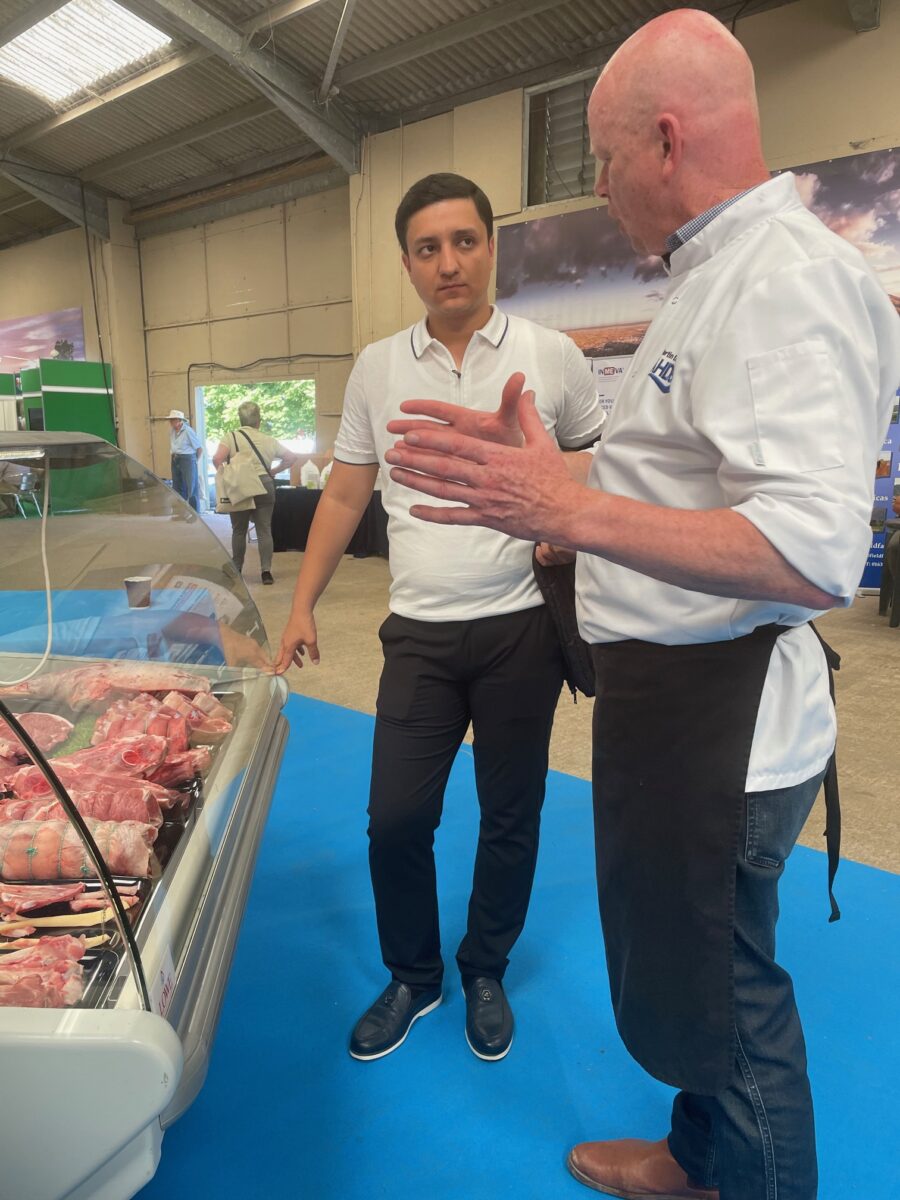
Official International Delegates dinner. Meetings and discussions with key contacts. That evening, the NSA chair Peter Delbridge and his wife, with CEO Phil Stocker, Susan Stuart AHDB and Nick Cockayne Rappa joined the delegates for a hotel supper where relationships were cemented over another great meal of UK lamb.
31st July.
Wednesday was a mix of meetings at various venues across Shropshire.
On the first visit of the day to Farmgene, the delegates were given a tour, explanation and demonstration about the company’s breeding work – semen collection and storage, artificial insemination, embryo transfer, and could compare their practices with how it is done in UK.
On to Harper Adams University, where they were given a tour of the University dairy section, with the delegates being particularly impressed with the way the research work is organised and funded, individual diets for research, robotic milking machine.
Just down the road was Roden Livestock, where Richard Hartshorn gave a demonstration and talk about South Devon Cattle. The delegates realised that this breed, being high performing with relatively low input and adaptable in challenging conditions, could be a good alternative or complementing their native breeds. They showed an interest in buying this breed’s semen.
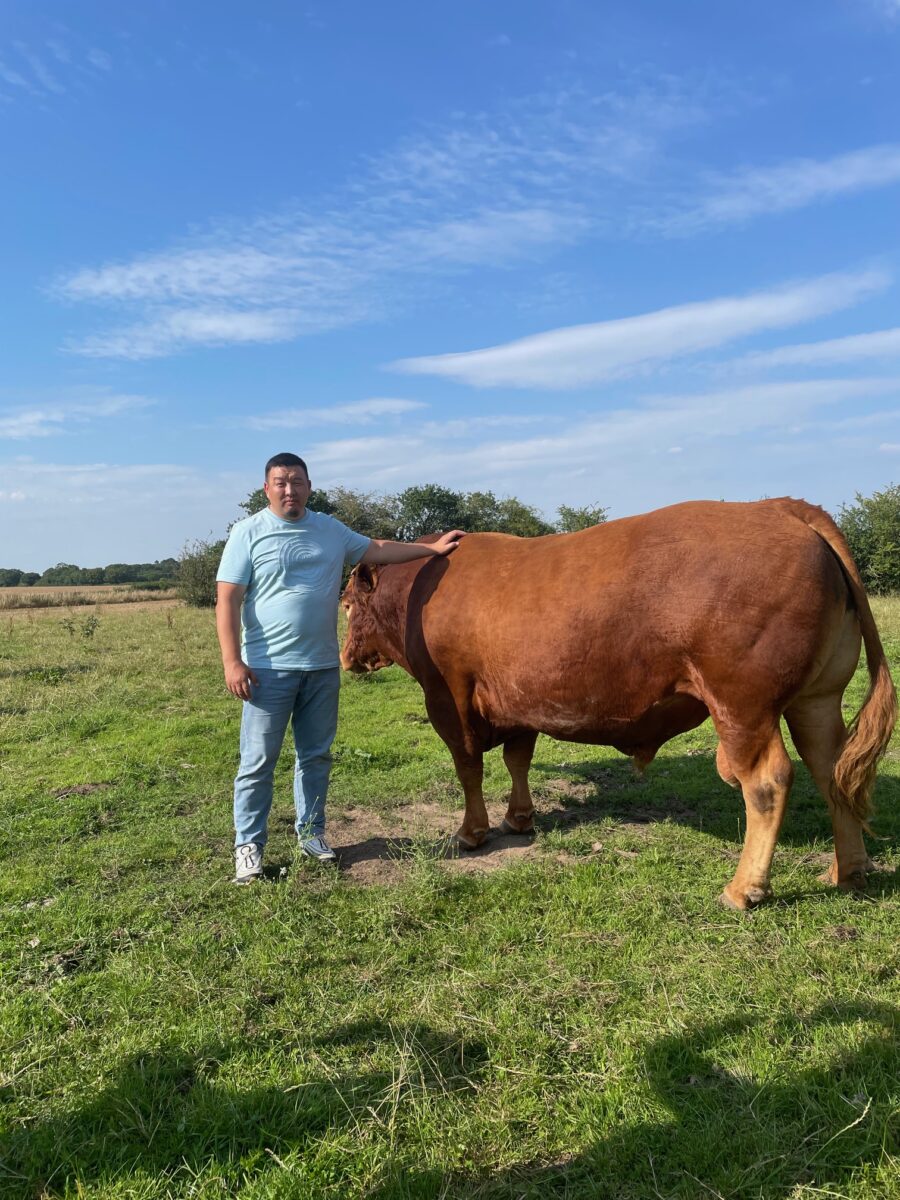
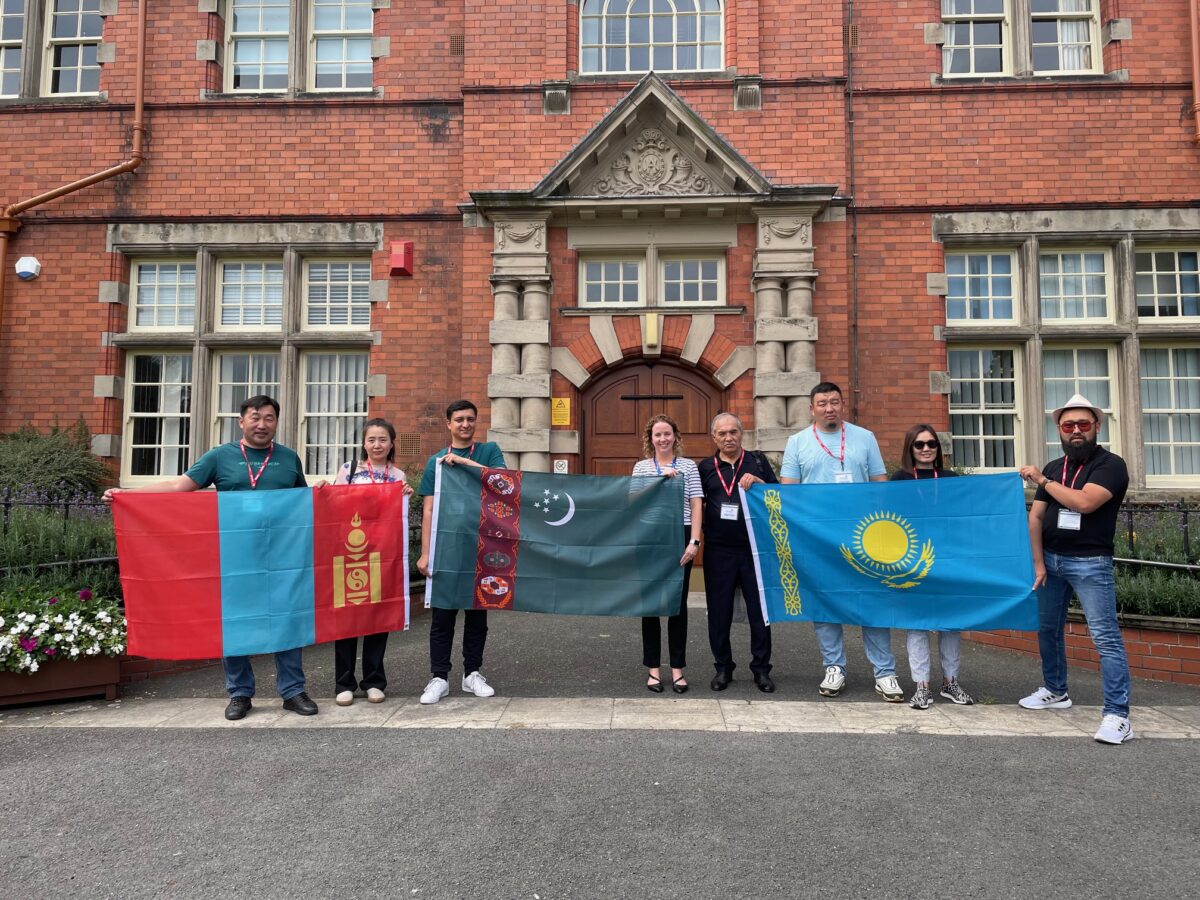
Finally there was a meeting with Cogent, where Henry Sanderson explained the work they do in cattle genetics. Cogent recently shipped semen to a private farm in Turkmenistan, with EHC in place. They are also interested in shipping to Kazakhstan, but the validity of EHC remains questionable. Delegates from Turkmenistan will contact the farm and ask for results / feedback.
1st August.
Burwarton Show on the Thursday was a great opportunity for the delegates to see the best of British livestock, equestrianism, machinery and equipment, and generally an idea of agricultural show, because such events are not known in their countries. The delegates were also amazed how well it was attended, by people of all ages.
It was focused not only on commercial breeds of livestock, but a variety of them used or simply kept in UK. Delegates realised that there are breeds they can explore deeper and that might be of interest to their countries. They also liked the machinery section and equestrian events.
After the parade, they had a chance to meet the Society’s President Lord Boyne and his wife Lady Boyne. Seeing British agriculture in this amazing entirety of stock, technology, equipment and lifestyle was a huge success and left a lasting impression on all of the delegates.
The delegates were all given Members tickets and free admission by The Burwarton Show Society Committee, we are very grateful to them for that.
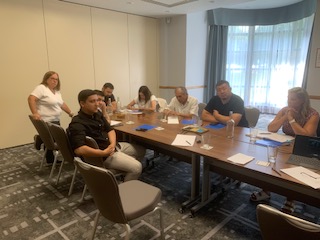
2nd August.
A final wash-up meeting at the hotel allowed for presentations from Susan Stuart, AHDB, Rob Grinnall, UKECP. Discussion about AHDB’s role in protecting the interests of British farmers, and what information could be used in delegates’ countries. Information about UKECP work and what they can offer and how they can assist in the agreement of certificates to facilitate the export of either animals or genetics purchased in the UK.
General feedback:
The delegates and embassy visitors were very pleased with the programme offered to them and the hospitality they received. They had opportunities to compare practices and approaches in their own countries to those in UK, identify opportunities for further cooperation, and technologies that will benefit them.
They liked the food that was provided, especially the way lamb was cooked.


